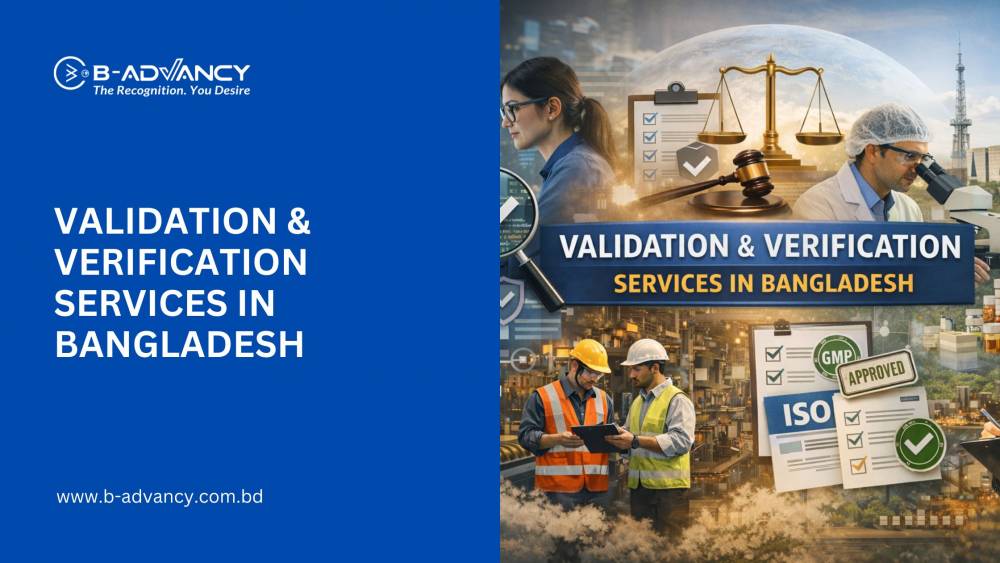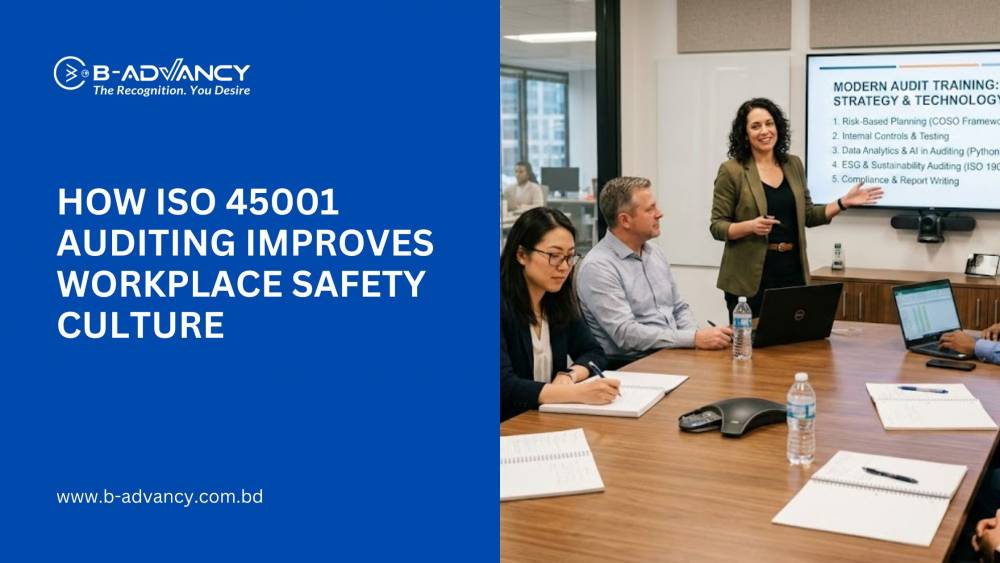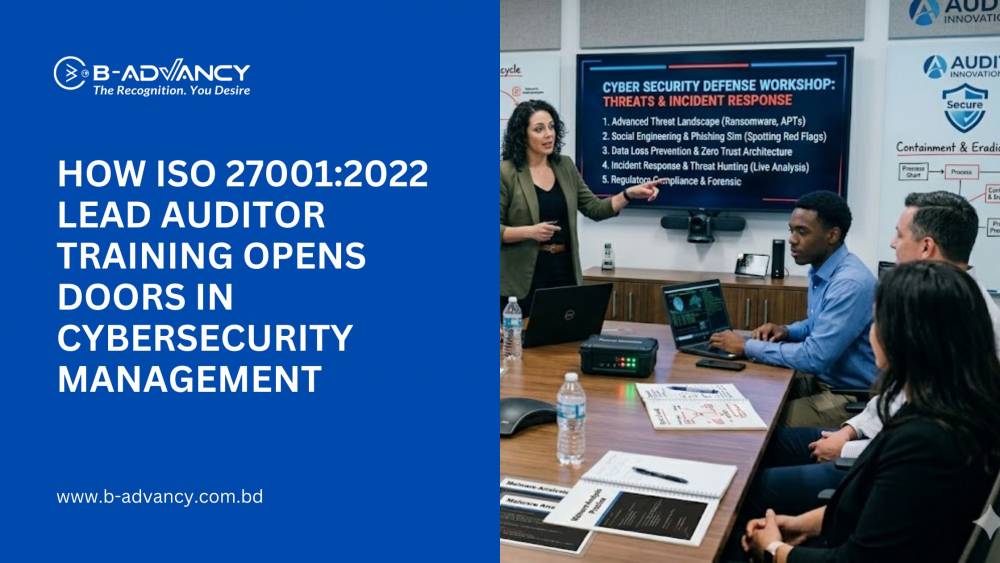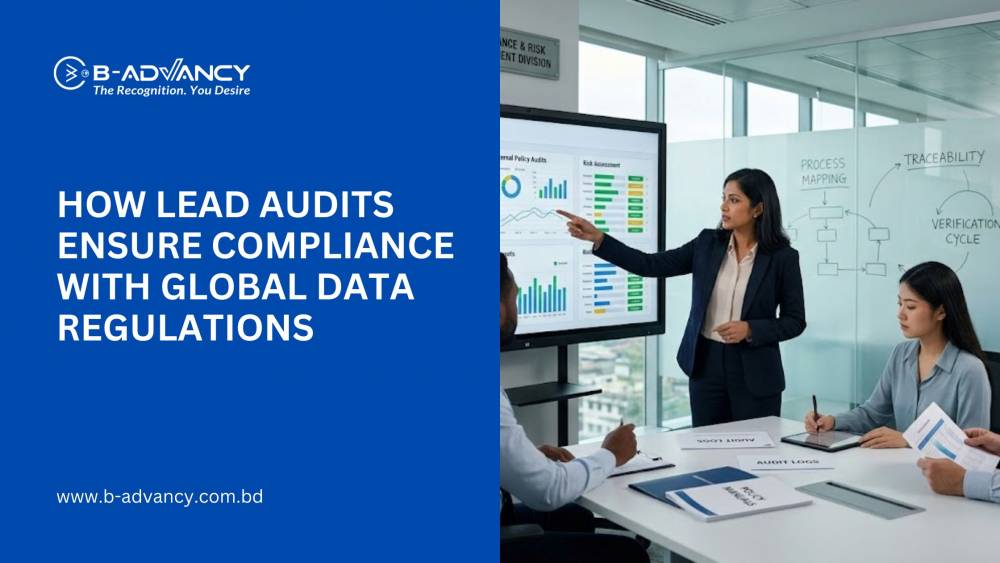The supermarket industry in Bangladesh is rapidly growing, with increasing consumer demand for high-quality products and services. As the industry expands, there is a growing need for supermarkets to adhere to international standards that ensure quality, safety, and customer satisfaction. ISO certification is a valuable tool that can help supermarkets in Bangladesh meet these expectations. This blog will explore the importance of ISO certification for the supermarket business, the benefits it offers, relevant rules and regulations, and how you can start your certification journey with B-ADVANCY Certification Limited.
What is ISO Certification and Why is it Important for the Supermarket Industry?
ISO (International Organization for Standardization) certification represents a commitment to quality management, safety, and operational excellence. For supermarkets, ISO certification can cover a range of standards, including ISO 9001 for quality management, ISO 22000 for food safety management, and ISO 14001 for environmental management.
In Bangladesh, the supermarket industry is becoming increasingly competitive, with consumers expecting high standards of hygiene, product quality, and customer service. ISO certification helps supermarkets maintain these standards by providing a framework for consistent operations, risk management, and continuous improvement.
Key Elements of ISO Certification for Supermarkets
ISO certification for supermarkets encompasses several key elements that contribute to the overall quality and safety of operations:
Quality Management System (ISO 9001)
ISO 9001 sets out the criteria for a quality management system (QMS) and is based on principles such as customer focus, leadership, and process approach. For supermarkets, this standard ensures that products and services consistently meet customer and regulatory requirements.
Food Safety Management System (ISO 22000)
ISO 22000 specifies the requirements for a food safety management system (FSMS). This standard is critical for supermarkets, as it ensures that food products are safe for consumption. It covers every stage of the supply chain, from production to storage and distribution.
Environmental Management System (ISO 14001)
ISO 14001 provides guidelines for establishing an effective environmental management system (EMS). For supermarkets, this involves managing environmental impacts, reducing waste, and promoting sustainability practices.
Benefits of ISO Certification for Supermarkets in Bangladesh
Enhanced Customer Trust and Satisfaction
ISO certification helps supermarkets build trust with their customers by ensuring consistent product quality and safety. This leads to higher customer satisfaction and loyalty.
Improved Operational Efficiency
By implementing ISO standards, supermarkets can streamline their operations, reduce waste, and improve resource management. This results in cost savings and more efficient business processes.
Compliance with Regulatory Requirements
ISO certification ensures that supermarkets comply with local and international regulations related to food safety, environmental management, and quality control. This reduces the risk of legal issues and enhances the supermarket’s reputation.
Competitive Advantage
In a competitive market, ISO certification sets a supermarket apart from its competitors by demonstrating a commitment to quality and continuous improvement. This can attract more customers and boost market share.
Bangladesh Rules and Regulations Regarding ISO Certification
In Bangladesh, the government places a strong emphasis on adherence to international standards like ISO, recognizing their importance in ensuring quality and safety in various industries, including the supermarket sector. The Bangladesh Standards and Testing Institution (BSTI) is the key authority responsible for promoting and ensuring compliance with these standards across industries. BSTI's role is crucial in facilitating the implementation of ISO standards, ensuring that supermarkets meet the required quality and safety benchmarks.
Additionally, the Department of Agricultural Extension (DAE) oversees the safety and quality of agricultural products, which are critical for supermarkets. The Ministry of Commerce also plays a role in regulating the retail industry, promoting fair trade practices and consumer protection.
For more information, visit the official websites of:
Steps to Achieve ISO Certification for Your Supermarket
Initial Assessment and Gap Analysis
Start by evaluating your current practices against the relevant ISO standards. Identify gaps in quality management, food safety, or environmental management that need to be addressed.
Develop and Implement a Management System
Based on the gap analysis, develop a management system that aligns with ISO standards. This involves creating documented procedures, defining roles and responsibilities, and ensuring proper training for staff.
Internal Audit and Management Review
Conduct internal audits to ensure that your management system is effectively implemented. Regular reviews by top management are necessary to address any issues and ensure continuous improvement.
Select a Certification Body
Choose a reputable certification body, like B-ADVANCY Certification Limited, to conduct an external audit. This audit will verify your supermarket’s compliance with the relevant ISO standards.
Achieve Certification and Continuous Improvement
Once the external audit is successful, you will receive ISO certification. It’s important to continuously monitor and improve your management system to maintain certification and enjoy its long-term benefits.
Challenges in Implementing ISO Certification
While ISO certification offers numerous benefits, supermarkets may face challenges during implementation:
Resource Allocation
Implementing ISO standards requires investment in training, technology, and infrastructure. While these costs can be substantial, the long-term benefits of improved efficiency and customer satisfaction often justify the investment.
Change Management
Transitioning to ISO-compliant practices may require changes in existing processes and staff behavior. Effective training and clear communication are essential to manage this change smoothly.
Documentation and Record-Keeping
ISO standards require thorough documentation and record-keeping. Establishing and maintaining these records can be time-consuming but is necessary for successful certification.
B-ADVANCY Certification Limited offers expert guidance to help you navigate these challenges, making the certification process smoother and more efficient. To contact them: Email: bangladesh@b-advancy.com | Call: +8801612264559
Conclusion
ISO certification is a strategic investment for the supermarket industry in Bangladesh. It enhances customer trust, operational efficiency, and regulatory compliance, giving supermarkets a competitive edge in the market. While the path to certification may present challenges, the long-term benefits make it a worthwhile endeavor. By aligning your supermarket operations with internationally recognized standards, you can achieve better business outcomes, reduce risks, and build a loyal customer base.


35.jpg)



































































































































































































